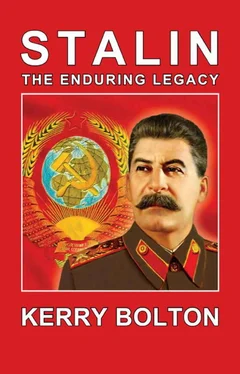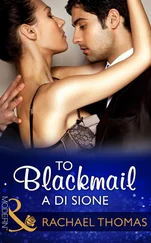Trotsky proudly stated that the Bolsheviks had sought to alienate children from their parents, but under Stalin parents resumed their responsibilities as the guardians of their children’s welfare, rather than the role being allotted to factory crèches. It seems, that in this respect at least, Stalinist Russia was less a Marxian-Bolshevik state than the present day capitalist states which insist that mothers should leave their children to the upbringing of crèches while they are forced to work; and ironically those most vocal in demanding such policies are often regarded as ‘right-wing’.
Trotsky lauded the policy of the early Bolshevik state, to the point where the state withdrew support from parents
While the hope still lived of concentrating the education of the new generations in the hands of the state, the government was not only unconcerned about supporting the authority of the ‘elders’, and, in particular of the mother and father, but on the contrary tried its best to separate the children from the family, in order thus to protect them from the traditions of a stagnant mode of life. [45] Ibid.
Trotsky portrayed the early Bolshevik experiments as the saving of children from ‘drunken fathers or religious mothers’; ‘a shaking of parental authority to its very foundations’. [46] Ibid.
Stalinist Russia also reversed the original Bolshevik education policy that had been based on ‘progressive’ American concepts and returned authority to the schools. In speaking of the campaign against decadence in music, [47] See below.
Andrei Zhdanov, Stalin’s cultural adviser, recalled the original Bolshevik education policy, and disparaged it as ‘very leftish’:
At one time, you remember, elementary and secondary schools went in for the ‘laboratory brigade’ method and the ‘Dalton plan’, [48] A laudatory article on the ‘Dalton Plan’ states that the Dalton School was founded in New York in 1919 and was one of the most important progressive schools of the time, the Dalton Plan being adopted across the world, including in the USSR. It is described as ‘often chaotic and disorganized, but also intimate, caring, nurturing, and familial’. Interestingly it is described as a synthesis of the theories of John Dewey and Carleton Washburne. ‘Dalton School’, http://education.stateuniversity.com/pages/1902/Dalton-School.html Dewey along with the Trotsky apologist Sidney Hook (later avid Cold Warrior and winner of the American Medal of Freedom from President Ronald Reagan) organised the campaign to defend Trotsky at the time of the Moscow Purges of the late 1930s. See Chapter II below.
which reduced the role of the teacher in the schools to a minimum and gave each pupil the right to set the theme of classwork at the beginning of each lesson. On arriving in the classroom, the teacher would ask the pupils ‘What shall we study today?’ The pupils would reply: ‘Tell us about the Arctic’, ‘Tell us about the Antarctic’, ‘Tell us about Chapayev’, ‘Tell us about Dneprostroi’. The teacher had to follow the lead of these demands. This was called the ‘laboratory brigade method’, but actually it amounted to turning the organisation of schooling completely topsy-turvy. The pupils became the directing force, and the teacher followed their lead. Once we had ‘loose-leaf textbooks’, and the five point system of marks was abandoned. All these things were novelties, but I ask you, did these novelties stand for progress?
The Party cancelled all these ‘novelties’, as you know. Why? Because these ‘novelties’, in form very ‘leftish’, were in actual fact extremely reactionary and made for the nullification of the school. [49] A Zhdanov, Speech at the discussion on music to the Central Committee of the Communist Party SU (Bolshevik), February 1948.
One observer visiting the USSR explained:
Theories of education were numerous. Every kind of educational system and experiment was tried—the Dalton Plan, the Project Method, the Brigade Laboratory and the like. Examinations were abolished and then reinstated; though with a vital difference. Examinations in the Soviet Union serve as a test for scholarship, not as a door to educational privilege. [50] Hewlett Johnson, The Socialist Sixth of the World (London: Victor Gollanncz, 1939), Book IV, ‘New Horizons’, http://www.marxists.org/archive/johnson-hewlett/socialistsixth/ch04.htm
In particular the amorality inherent in Marxism was reversed under Stalinism. Richard Overy states of this process:
Changing attitudes to behaviour and social environment under Stalin went hand-in-hand with a changing attitude towards the family… Unlike family policy in the 1920s, which assumed the gradual breakdown of the conventional family unit as the state supplied education and social support of the young, and men and women sought more collective modes of daily life, social policy under Stalin reinstated the family as the central social unit, and proper parental care as the model environment for the new Soviet generation. Family policy was driven by two primary motives: to expand the birth rate and to provide a more stable social context in a period of rapid social change. Mothers were respected as heroic socialist models in their own right and motherhood was defined as a socialist duty. In 1944 medals were introduced for women who had answered the call: Motherhood medal, Second Class for five children, First Class for six; medals of Motherhood Glory in three classes for seven, eight or nine offspring, for ten or more, mothers were justly nominated Heroine Mother of the Soviet Union, and an average of 5,000 a year won this highest accolade, and a diploma from the Soviet President himself. [51] R Overy, op. cit., 255-256.
No longer were husband and wife disparaged as the ‘drunken father’ and the ‘religious mother’, from whom the child must be ‘emancipated’ and placed under state jurisdiction, as Trotsky and the other Old Bolshevik reprobates attempted. Professor Overy states, rather, that ‘the ideal family was defined in socialist-realist terms as large, harmonious and hardworking’. ‘Free love and sexual licence’, the moral nihilism encouraged by Bolshevism during its early phase, was being described in Pravda in 1936 as ‘altogether bourgeois’. [52] Ibid.
In 1934 traditional marriage was reintroduced, and wedding rings, banned since the 1920s, were again produced. The austere and depressing atmosphere of the old Bolshevik marriage ceremony was replaced with more festive and prolonged celebration. Divorce, which the Bolsheviks had made easy, causing thousands of men to leave their families, was discouraged by raising fees. Absentee fathers were obliged to pay half their earnings for the upkeep of their families. Homosexuality, decriminalised in 1922, was recriminalised in 1934. Abortion, legalised in 1920, was outlawed in 1936, with abortionists liable to imprisonment from one to three years, while women seeking termination could be fined up to 300 roubles. [53] Ibid., 257.
The exception was that those with hereditary illnesses could apply for abortion. [54] Ibid., 258.
Kulturkampf
The antithesis between Marxist orthodoxy and Stalinism is nowhere better seen than in the attitudes towards the family, as related above, and culture.
Andrei Zhdanov, the primary theoretician on culture in Stalinist Russia, was an inveterate opponent of ‘formalism’ and modernism in the arts. ‘Socialist-realism’, as Soviet culture was termed from 1932, [55] Ibid., 352.
was formulated that year by Maxim Gorky, head of the Union of Soviet Writers. [56] Ibid., 353.
It was heroic, folkish and organic. The individual artist was the conveyor of the folk-soul, in contrast to the art of Western decline, dismissively described in the USSR as ‘bourgeoisie formalism’. [57] Ibid.
Читать дальше












